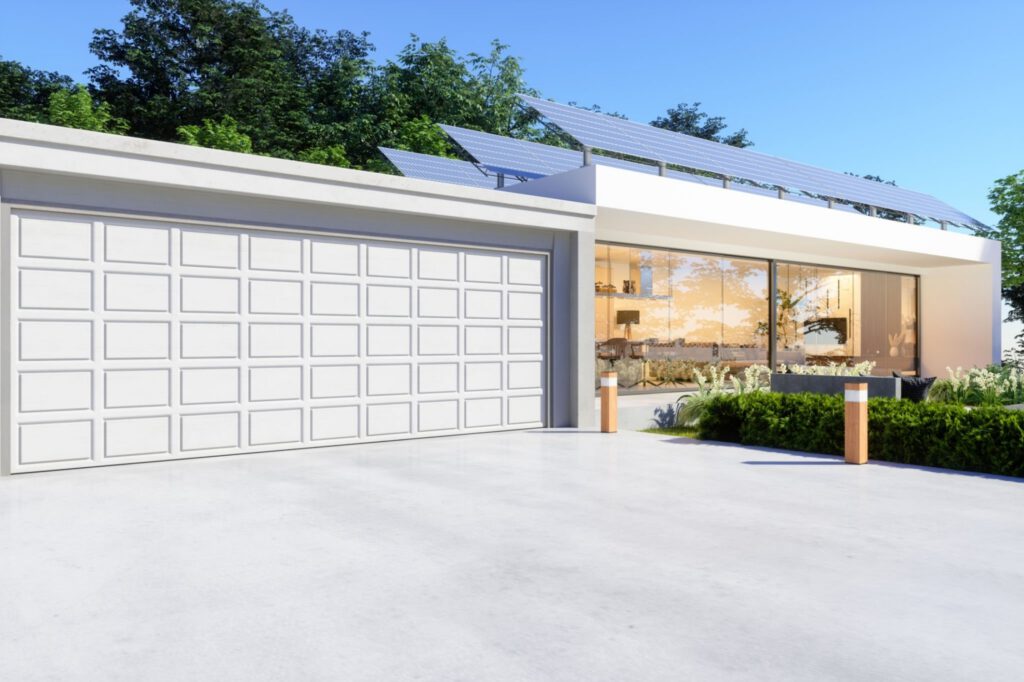Garage door springs and cable repair is a complex job. In some cases, a professional will be needed to complete the task. Below are some simple instructions for repairing garage door springs or cables.
Recommendations for Garage Door Spring Repair
There are many garage doors available, from roll-up sectional garage doors to swing up or down. There are many sizes and shapes available, from a 16×7 2-car garage to an 8×7 single garage. Some are multi-paneled, while others have only one size. You can have them made of metal or wood, with custom windows and locks. They all share one thing in common: how they work and the mechanical parts involved in making it happen.
Broken torsion springs are the most common type of garage door repair Sacrament CA. A garage door spring can last between 8 and 12 years, depending on its manufacturer and quality. Garage doors can come with one large torsion spring, or two on each side. This gives you a total of four springs. Without the proper tools and experience, it is not recommended that anyone attempt to repair the garage door. This could result in serious injury to your fingers and hand. It is not worth the risk, I promise.
If your garage door has more than one spring, and one breaks or loses its tension it is advised that you replace them all at once. This will prevent any further damage to the door.
You may have to replace the garage door, even though it will still work. However, older springs can cause the garage door to break, putting more strain on the new springs and reducing their life span.
In extreme cases, the garage doors could fall on their own without safety supports, causing damage and injury to the panels, cables, and opener.
What tools will I need for repairing my garage door springs or cables?
This list contains useful tools and materials that you’ll need to fix your garage door’s cables and springs before you start:
Hammer
Clamps
Protective gear, such as safety goggles and leather gloves
Hammer
Wrench set with an adjustable wrench
Drill
Locking pliers
Winding bars
Ratchet and socket set
Lift cables
Torsion springs
Bottom brackets
The steps in how to repair a garage door are the following:
Lock the garage door & loosen the unbroken springs
Unwind and disconnect the springs from center bracket
Secure torsion tube and remove old springs
Install new center bearing and left spring
Replace rollers, lift cables, and bottom brackets
Thread wires and tighten drums
We’ll go over each of these.
Step 1: Lock the Garage Door and Loosen the Unbroken Springs
First, you will need to clamp the garage door with the locking pliers. This is done to prevent any accidents that could occur from an unlocked garage door.
Next, loosen the spring by using your winding rod. You can then place the spring into the winding cone. Now, loosen the setscrews. Take care as the spring can spin aggressively when it is being released.
Step 2: Disconnect the springs from the Center Bracket
Place the second winding bar into the next hole. It should be placed at a 90-degree angle to the winding bars. Then, take out the first winding rod and turn the spring. This is called the “passing-over” motion.
Take out the bolts and nuts from the stationary cones. Next, slide the springs into the brackets at the end.
Step 3: Secure the Torsion Tube, and then remove the old springs
Your locking pliers can be used to loosen the setscrews on the right and left cable drums. After that, you can disconnect the cables.
Once you’ve finished disengaging the cables from the door, slide the Torsion tube to your right. You can then remove the cable drum. You can also push the broken spring from the tube.

Step 4 – Install a New Left Spring Bearing and Center Bearing
The first step is to remove the torsion spring from the tube and reassemble it. Remember that the stationary cone must face the center bracket at all times during this step. The cable drum can be installed again, and the torsion bars reinserted.
You will need to connect the cones stationary to the bracket by sliding the bearing center onto the torsion bars.
Step 5: Replace Rollers and Lift Cables.
This is the best time to replace any rusted bottom brackets, cables, or rollers. This can be done by placing the lift cable loop on the new bracket.
Step 6: Attach Tighten Drums to the Cables
Secure the lift cable to the cable slot. You will also need to tighten your drums with the pliers. Next, wind the wire and tighten it as much as you can before attaching the set screws.
Make sure both sides of your garage door are securely fastened. Your door will open evenly and correctly if this is done.
In most cases, you can follow these simple instructions to fix your springs and cables. If however, the task proves too difficult, please call Garage Service Pros to schedule an appointment.






